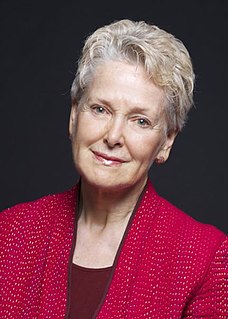A Quote by Sri Mulyani Indrawati
In many countries, laws still work to women's disadvantage - for example, by requiring married women to obtain their husbands' permission to register a business, own property, or work.
Related Quotes
Women are more than 50% of almost every country in the world. Countries rob themselves of the resources of women if they keep them as property. It isn't that women can't find work. It's just that women don't get paid for their work and are not recognized properly. It's something that has to be on the international agenda all the time.
And this exclusion of "women's work" continues, despite United Nations data gathered since 1975 (the beginning of the UN Decade for Women) indicating that women globally contribute two-thirds of the world's work hours, for which - given the imbalanced, unjust, and truly peculiar nature of the accounting characteristic of dominator economics - they globally earn only one-tenth of what men do and own a mere one-hundredth of the world's property.
Sometimes our definitions fall short. Take, for example, the way we view income and labor. It simply doesn't cover enough of the work that women, and in particular poor women, are doing - especially in their own households and the vast 'informal' economy in which most of the world's poorest people work.
Women know what kinds of laws can really be implemented. I loved in the film where the woman was talking to the other women about what it was going to be like when they were married. And she was saying, "Now, don't you think that just because the mother gave your husbands that cow that it's just his cow."
Some women work while they are pregnant, but not me. That was a choice I had made. That's when I took a break. Men can work at whatever stage they are; whether they turn daddy, they still have their own thing. But women can't afford that because by being mothers, they have to be there for their kids.
Property rights can improve a woman's ability to stand up to violence in the home. You might think education and employment are important because they give women exit options, but property is as well. Give women equal property rights to inherited land, then they have an asset they can take out of the marriage. This gives husbands strong incentives to not beat them.
There are many feminists who work in the media, and they think that feminism is very important. It is in their own lives, but mostly feminism has had an impact among privileged women in the advanced Western countries. For the most part, it hasn't begun to touch the lives of poor and working women in the Third World, and that distresses me.
Those in the west who dismiss the repressiveness of laws against women in countries like Iran, no matter how benign their intentions, present a condescending view not just of the religion but also of women living in Muslim majority countries, as if the desire for choice and happiness is the monopoly of women in the west.



































